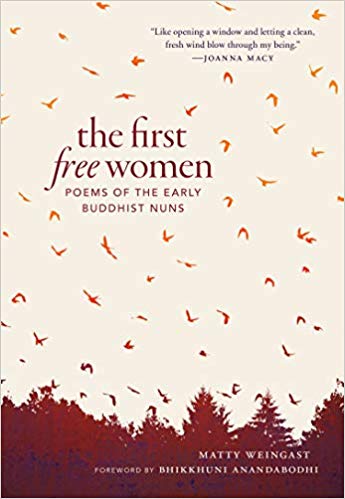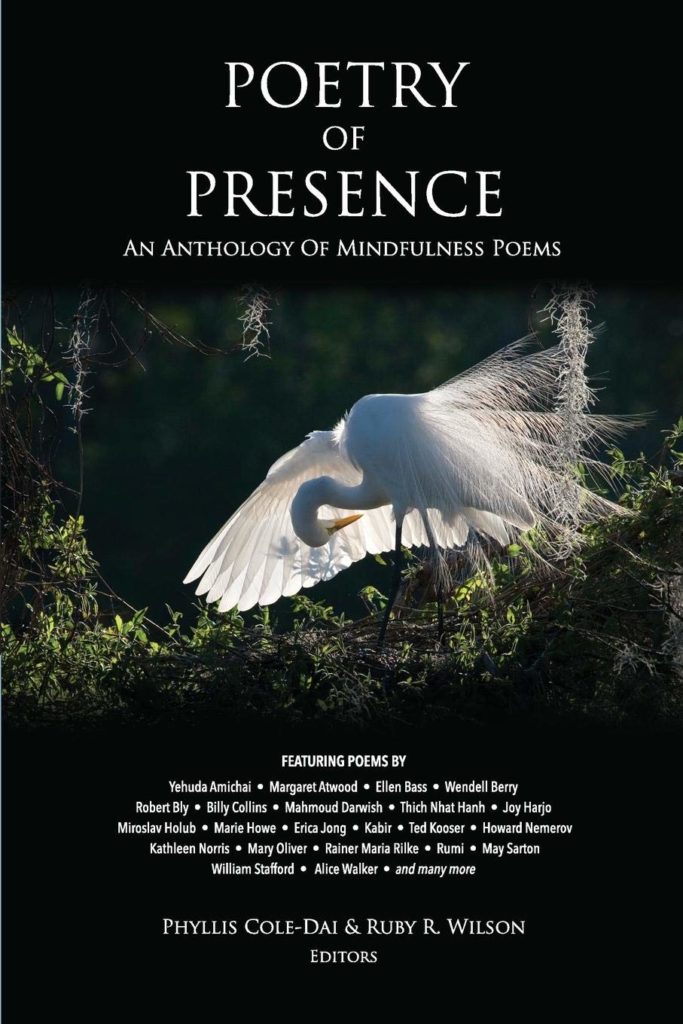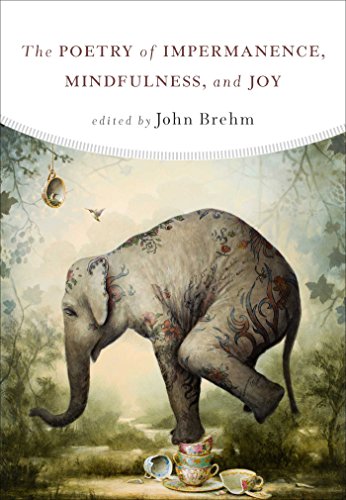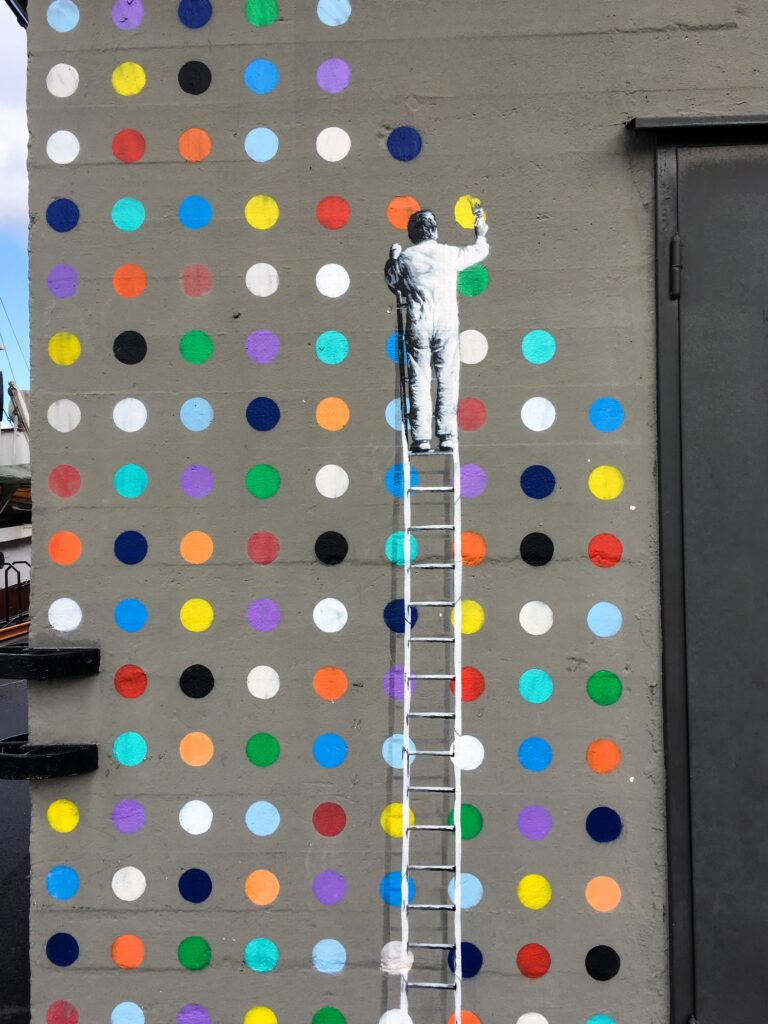The Use of Memory
I was at Spirit Rock’s Day of Poetry (on Zoom) yesterday, hosted by Phillip Moffitt, and the lines of poetry that are still speaking to me are from T.S. Eliot’s Four Quartets, which wasn’t even one of the poems we were contemplating. But in talking about one of the poems that we were contemplating, someone made reference to the dharma in the Four Quartets, at which point Phillip promptly got out his T.S. Eliot and read this to us:
There are three conditions which often look alike
Yet differ completely, flourish in the same hedgerow:
Attachment to self and to things and to persons, detachment
From self and from things and from persons; and, growing between them, indifference
Which resembles the others as death resembles life,
Being between two lives—unflowering, between
The live and the dead nettle.
I’ve heard those lines read many times, but this time instead of stopping at that point, Phillip continued reading just a bit — and it was these extra few lines that really stuck with me:
…This is the use of memory:
For liberation–not less of love but expanding
Of love beyond desire, and so liberation
From the future as well as the past…
***
I don’t even know what those line mean, exactly. Especially: liberation from the future.
But I do know that it mean something to me. And coming to know what that something is, is important.
***
Photo by Maria Bobrova on Unsplash
We Must Risk Delight

If we deny our happiness, resist our satisfaction,
we lessen the importance of their deprivation.
We must risk delight. We can do without pleasure,
but not delight. Not enjoyment. We must have
the stubbornness to accept our gladness in the ruthless
furnace of this world. To make injustice the only
measure of our attention is to praise the Devil.
***
Poem excerpt from A Brief for the Defense, by Jack Gilbert
Photo by Kyle Nieber on Unsplash
Listen.

Attention is the natural prayer of the soul…
***
Quote from A Journal of the Year of the Ox, by Charles Wright
Photo by Alex Blăjan on Unsplash
If You Really Want to Be Free…

I just received my copy of The First Free Women: Poems of the Early Buddhist Nuns, a translation/adaptation by Matty Wiengast of the Therigatha (“Verses of the Elder Nuns”), which I’ve been waiting for since hearing just a few of them read aloud while I was at the Forest Refuge last June.
Bhikkhuni Anandabodhi writes:
“These poems you hold in your hands are like jewels to me…
“I had been waiting a long time for a rendition of the Therigatha that would speak directly to my heart. There are several English translations, but most have been done by scholars who have remained in a formal relationship with these poems composed by enlightened women 2,600 years ago. While these academic translations of the Therigatha may be literally accurate, and with some effort the inspiring teaching can be found, for me they miss the quality of transmission and so remain as words spoken long ago, now dusty and dry.
“Reading through this new rendition, feeling the visceral response, and experiencing the sense of clarity and connection that came through, I realized that Matty had taken the poems far beyond what I had hoped for.”
I agree.
As Jack Kornfield writes, “These are fresh, powerful, poetic translations that bring our ancient wise women to life. Let their beautiful songs of freedom inspire you own heart.”
Here’s an excerpt from Tissa — The Third
(The title of each poem is the original author’s name — in Pali and in English.)
Why stay here
in your little
dungeon?
If you really want
to be free,
make
every
thought
a thought of freedom.
Always At Ease

Like the stone inside a rock,
the stillness of form is
the center of every-
thing,
Inalterable, always at ease.
***
Poem fragment from “A Journal of the Year of the Ox,” by Charles Wright, published in Oblivion Banjo: The Poetry of Charles Wright
Photo by Lubo Minar on Unsplash
Buy This Book!

Longtime readers of this blog will notice that I haven’t been posting poems the way I used to, that now I only use excerpts of poems, or older poems that are already in the public domain, or curated poems that have been sent to me or are in some other way publicly available. That’s because I’m being more careful now about observing the precept of not taking what’s not freely offered (which I posted about here).
But I used to post whole poems, copied straight out of books (which, at least, I had purchased — but still) without thinking much about it. A lot of those poems were copied from Poetry of Presence: An Anthology of Mindfulness Poems, edited by Phyllis Cole-Dai and Ruby R. Wilson. (All poems in the book were reprinted by permission.)
I won’t be copying whole poems and posting them anymore, but if you liked any of the poems I’ve already posted — and perhaps, are using them in your dharma groups — please consider supporting these poets financially as well as literarily — by buying the book that I copied their poems from!
Or better yet, email me here with the name of the poems I’ve posted that you really love, and I’ll try to make up for using them without the poet’s permission by buying — and then encouraging my readers to buy — a whole book of their poems!
The Problem is…

You cannot get in the way of anyone’s path to happiness, it also does no good. The problem is
figuring out which part is the path and which part is the happiness.
***
Poem excerpt from War of the Foxes, by Richard Siken (2015)
courtesy of Pome
Photo by Clay Banks on Unsplash
That Everything Changes, Changes Everything

In his Introduction to The Poetry of Impermanence, Mindfulness, and Joy, editor John Brehm writes:
“If we knew ourselves as living in a ghost world of unceasing change, we wouldn’t take ourselves and the things that happen to us quite so seriously. And we would see more clearly the preciousness of all life…
“Living in the full knowledge that everything changes, changes everything. It loosens our grasp and lets the world become what it truly is, a source of amazement and amusement.”
***
I love the art on this cover! It’s: “Our Fragile Past,” by Kevin Sloan.
Yes.
Coolness —
the sound of the bell
as it leaves the bell.

***
Tathatā is the Buddhist concept of “suchness.” It is very similar to suññatā (emptiness) but derives from saying “yes” to the universe. There is really nothing to hold on to, yet there is something going on. The quality of suchness is like the reflection of ultimate reality. It is a mirage that reflects something real out there; only in this case, the reality is not out there, but it is in our minds. Suññatā and tathatā—emptiness and suchness—are the two sides of reality that we experience in sense-based daily lives.
— from Atammayatā by Piya Tan
***
poem by Yosa Buson (1716-1784), translated from the Japanese by Robert Hass
The Life of This World

from The Southern Cross
by Charles Wright
The life of this world is wind.
Windblown we come, and windblown we go away.
All that we look on is windfall.
All we remember is wind.
***
Photo by Mike Lewinski on Unsplash

